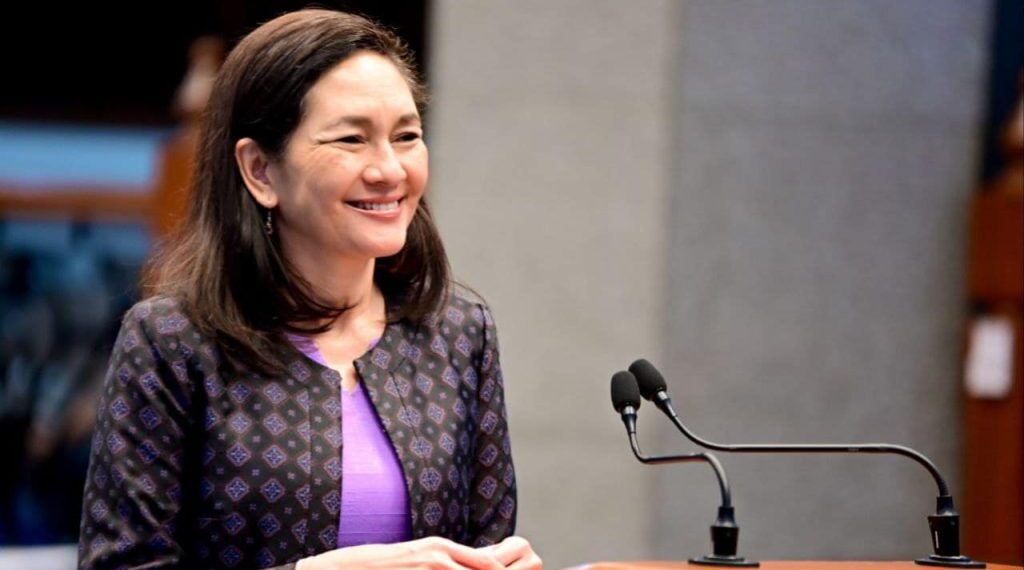Sen. Risa Hontiveros stressed to consider as “red flag” the PHP18.827 billion contract entered by the Comelec for the 2025 elections to a lone bidder known for its “cheating machines” in Congo.
In a privilege speech, Hontiveros questioned the February 22 Comelec awarding the contract for the lease of the automatic voting machines for the 2025 national and local elections.
With an PHP18.827 billion approved budget for the contract, this “disturbing” contract is the biggest in the history of the Philippine elections.
“It dwarfs the aggregate total of PHP25 billion spent for poll automation from 2010 to 2022,” noted Hontiveros.
The senator was surprised that the bidding for the richest single contract in Philippine election history only attracted a single bidder: a joint venture composed of South Korea’s Miru Systems Co. Ltd. and Philippine companies Integrated Computer Systems, St. Timothy Construction Corporation, and Centerpoint Solutions Technologies.
“This company, Miru, is no stranger to controversy,” said Hontiveros as she pointed out that Miru was previously involved in supplying automated election systems for, aside from its home country, the Kyrgyz Republic, the Democratic Republic of the Congo, and the Republic of Iraq.
In Congo, researchers reportedly found that the machines Miru tried to sell there were re-packaged equipment originally intended for Argentina, where similar machines faced pushback. She related that the election machines in Congo were called “cheating machines.”
In Iraq, a 2018 Reuters report found that Miru’s machines were “at the heart of fraud allegations that led to a manual recount in some areas after the May 12 election.”
Hontiveros cited researchers which said that 30 percent and 75 percent of the voting machines supplied by Miru were affected respectively by election-day glitches and malfunctions in those countries.
“And while these doubts linger in our minds – doubts caused by electoral troubles in fragile states like Congo and Iraq — it seems that there is also a clear violation of law,” she said.
Hontiveros also asked how many other substantial contracts have been awarded to the lone entity who bothered to submit a bid.
“I agree with Sen. (Sonny) Angara. It might be time to re-examine the legal framework we have set in place for public procurement, to prevent the system from being gamed, rigged, and manipulated for private gain. Let’s bring back real competition in public bidding.”
During post-qualification of the Miru contract, Comelec Commissioner Marlon Casquejo admitted that the automated counting machine (ACM) being presented was a prototype.
He said, “This machine is ours; it really belongs to the Comelec. We made our wish list. Miru just followed. So, if you noticed, this is a customized machine which has not yet been produced.”
However, Hontiveros noted that Section 12 of Republic Act number 8436, the Automated Election Law, as amended, requires that the system procured must have been successfully used in a prior electoral exercise in the country or abroad.
Consequently, the senator said many were asking if Section 12 of the Automated Election Law prohibits the use of such prototype ACMs in connection with the 2025 elections.
“If yes, why were these prototype ACMs of Miru were allowed?”
She said even a simple online search reveals there are at least 20 suppliers of automatic voting machines worldwide. Despite this, the Comelec was only able to attract a single bid for the largest single contract in Philippine election history.
With regards to their local partners, she questioned why a construction company is involved in leasing voting machines.
She said this construction company shares the principal office address of St. Gerrard Construction General Contractor & Development Corporation which was blacklisted by the Department of Public Works & Highways.
The two companies also share a common incorporator – Pacifico F. Discaya II. She asked if St. Timothy was incorporated to circumvent the blacklisting of St. Gerrard.
There are also reports St. Timothy wrote the Comelec revoking the authority of Jinbok Chung to represent the company in the contract signing for the procurement project. St. Timothy said that the revocation was due to the magnitude of the potential liability. It was not fully informed of the scope of its responsibilities under the contract.
Hontiveros said Republic Act number 9184 (Government Procurement Reform Act) requires that all public procurement be done – with certain exceptions – through competitive bidding.
In this controversy, it was confirmed that while five companies including Dominion Voting Systems, Indra Philippines, Inc., AMA Group Holdings Corp. and Smartmatic – purchased bidding documents but Miru declined to submit bids.
“Napakalaking kontrata, walang ni isang bidder? Yes Smartmatic was disqualified because of its own money laundering controversies but there were others. Bakit biglang naglaho na lang?”
The Organization for Economic Co-operation and Development (OECD), in its Guidelines for Fighting Bid Rigging in Public Procurement defines “Bid-Suppression” as an agreement among competitors in which one or more companies agree to refrain from bidding or to withdraw a previously submitted bid so that the designated winner’s bid will be accepted.
Some quarters are asking, is this what happened here?
Hontiveros also asked, “What will happen to the PHP402 million we spent to procure automated election software – including the source code – to enable a proper source code review thereof? Gone with the wind.”
































